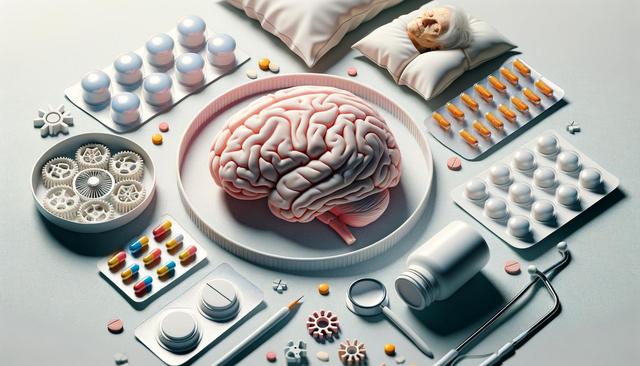Recognizing the Early Signs of Brain Health Issues
One of the most crucial steps in effective dementia treatment is identifying the 3 early signs of brain health issues. These early indicators often include subtle changes in memory, problem-solving skills, and mood. Being able to detect these shifts can be instrumental in learning how to catch cognitive decline early. Many individuals might overlook these symptoms, thinking they are simply part of normal aging, but early intervention can significantly impact the progression of cognitive disorders.
Key early symptoms to be aware of include:
- Frequent memory lapses affecting daily life
- Difficulty in planning or solving problems
- Changes in mood or personality that are unusual for the person
Understanding the 3 symptoms of poor brain function can empower individuals and caregivers to seek help sooner. Keeping an eye on 3 common overlooked brain health symptoms, such as sudden confusion, withdrawal from social activities, and challenges with spatial awareness, can pave the way for timely medical consultation.
Importance of Early Detection and Diagnosis
Learning how to catch cognitive decline early offers a better chance to slow down the progression of dementia. Early diagnosis allows for a broader range of treatment options and can improve the quality of life for both patients and their families. Recognizing the 3 early warning signs of memory loss, such as forgetting recently learned information, asking the same questions repeatedly, and increased reliance on memory aids, is crucial for early intervention.
Some key benefits of early detection include:
- Access to current treatments that may delay symptoms
- Opportunity to participate in clinical trials
- Better planning for the future, including financial and legal matters
By encouraging individuals to schedule a brain health checkup at the first sign of concerns, healthcare providers can craft more effective and targeted management plans. Early diagnosis also reduces the emotional burden on caregivers by providing them with crucial resources and support.
Current Approaches to Dementia Treatment
Dementia treatment today involves a combination of medication, therapy, and lifestyle adjustments. While medication can help manage symptoms like memory loss and confusion, non-pharmacological approaches often play a significant role. Cognitive therapies, structured activities, and social engagement are integral parts of comprehensive care plans.
Common treatment strategies include:
- Medications that regulate neurotransmitters to improve cognition
- Occupational therapy to maintain daily living skills
- Behavioral therapy to address anxiety and agitation
Incorporating 3 early signs of brain health issues into screening protocols ensures that treatments are initiated when they can be most effective. Families and caregivers are also encouraged to watch for 3 symptoms of poor brain function and seek professional advice promptly.
The Role of Personalized Brain Wellness Programs
As the understanding of dementia evolves, there is increasing recognition of the value of personalised brain wellness programs USA. These programs tailor interventions to the individual’s unique cognitive profile, lifestyle, and medical history. Personalized approaches not only address current symptoms but also focus on preventive strategies to maintain cognitive function for as long as possible.
Elements often included in these programs are:
- Customized cognitive training exercises
- Personalized dietary and physical activity recommendations
- Stress management and mental wellness techniques
By integrating the early recognition of 3 common overlooked brain health symptoms into personalized care plans, these programs offer a holistic approach to dementia treatment. Patients benefit from therapies that align with their specific needs and preferences, making adherence and success more likely.
Empowering Individuals and Caregivers Through Education and Support
Education plays a vital role in dementia treatment. Teaching patients and caregivers about the 3 early warning signs of memory loss and how to catch cognitive decline early enables proactive management. Support groups, educational workshops, and counseling services provide essential emotional and practical assistance throughout the journey.
Steps to empower patients and caregivers include:
- Encouraging regular brain health screenings
- Providing resources on managing daily challenges
- Building a strong network of support professionals
Promoting the need to schedule a brain health checkup helps ensure that more individuals receive timely intervention. When combined with the resources offered by personalised brain wellness programs USA, education and support create a strong foundation for managing dementia with dignity and hope.
Conclusion: Taking Action for Better Brain Health
Understanding dementia treatment begins with recognizing the importance of early detection and personalized care. By staying informed about the 3 early signs of brain health issues and learning how to catch cognitive decline early, individuals and caregivers can take proactive steps to manage brain health effectively. Scheduling a brain health checkup and exploring options like personalised brain wellness programs USA can make a meaningful difference in the lives of those affected by cognitive decline. Early action, ongoing education, and tailored support are key pillars in navigating the challenges of dementia with greater confidence and resilience.




Leave a Reply